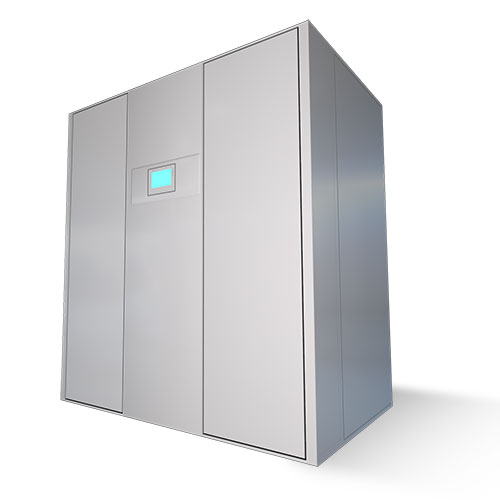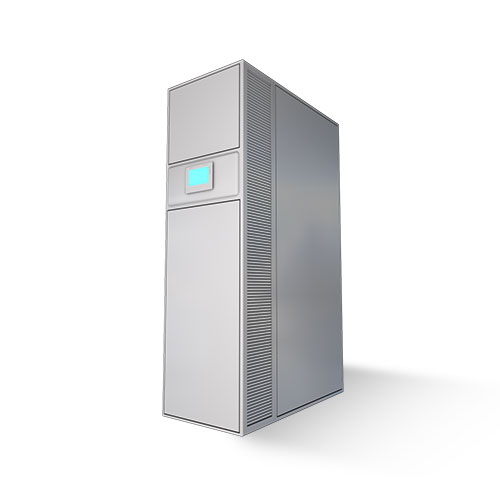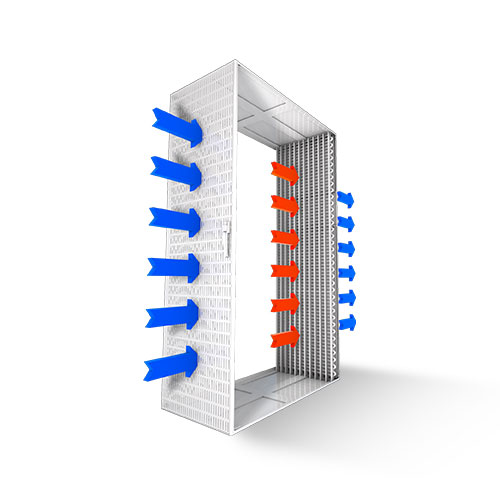Cooling in data center
Cooling and efficiency
in the data centre
Traditional raised floors tended to have passive characteristics and these are now being supplemented by completely new functions with the advent of active raised floor panels.
Although or precisely because server and switch manufacturers are outperforming each other with innovations, the requirements for air conditioning in data centers are constantly increasing.
They are used for heating or cooling, these active panels open up new possibilities for offices or technical rooms.
Weiss Raised Floor Systems GmbH has a comprehensive portfolio of products at its disposal, which can be adapted to suit your individual requirements
It all started with the idea of offering electronically controlled manual air volume panel regulation, already established for raised floor ventilation panels.
Allow yourself to be inspired. Raised floors overcome passivity.
Regardless of whether they are used for heating or cooling, these active raised floor panels open up new possibilities for offices or technical rooms.
The rapid development of recent years has meant that the volume of data and the infrastructure made available for this purpose have grown to an extent not previously thought possible.
As a result, the infrastructure has to be adapted to reality again and again.
This applies both to existing data centers that are forced to make full use of their capacity and to the planning of new data centers that must try to be prepared for the diverse requirements of the present and the future.
In order to make this easier for data center operators, Weiss Raised Floor Systems GmbH, has taken up this topic and brought out a whole series of active panel innovations in the field of data center air conditioning.
JetPanel | HydroLogic Panel | HydroLogic V Panel
Weiss Raised Floor Systems GmbH has a comprehensive portfolio of products at its disposal, which can be adapted to suit your individual requirements. Allow yourself to be inspired.
Youtube
CRAC Unit

Advantages
- Proven for a long time
- Ideal for large data centres
- Few water connections
- High safety
- Good condensewater management
Disadvantages
- Low precision per single rack
- No reaction to load changes
- Heat exchanger far away from heat generator
- Air has to travel long distances
- Difficult scalability
Sidecooler | Inrowcooler

Advantages
- High precision
- High energy efficiency
- Heat exchanger moves closer to the heat generator
- High performance
- No need for raised floor
Disadvantages
- Very high space consumption
- Many connections necessary
- Pipework in the data centre
- Difficult scalability
Water chilled rear door

Rear door Heat exchange
Advantages
- High efficiency
- Little space consumption
- Easy to retrofit
- Easy to scale
- Ideal with homogeneous load distribution over the height of the racks
Disadvantages
- Poor overflow of the heat exchanger surface with heterogeneous load distribution
- Difficult for server maintenance because cooling capacity is not available when opening the rear door
- Difficult to handle. Continuous movement of the connecting hoses when the door is opened.
